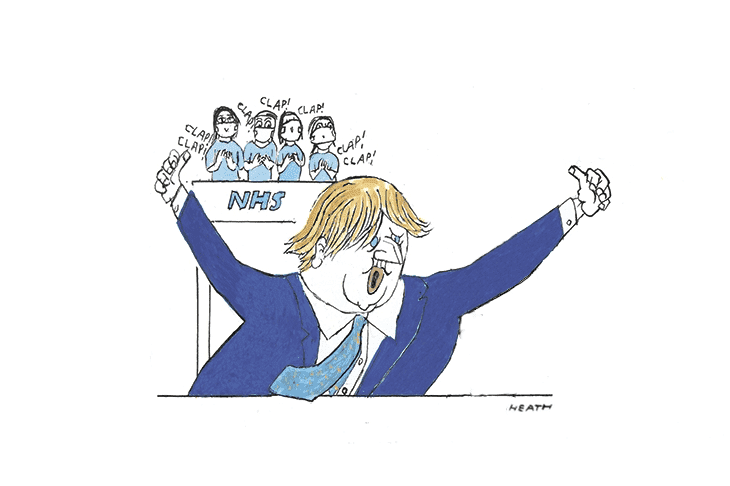The Health and Care Bill is having a predictably stormy passage through parliament, popping up in the Lords next week for its second reading. If you’d paid only cursory attention to its closing stages in the Commons then you might be forgiven for thinking the legislation is largely about reform to social care and privatisation of the NHS. In reality, the social care policy was inserted at the last minute, and it’s only an amendment covering the cap on care costs, while privatisation has become something left-wing politicians like to warn is about to happen regardless of what’s in the bill before them (more on that here).
It is not cheap to train a health worker. It takes many years
There are a lot of other things that aren’t in the bill which really should be, not least given the lessons of the past two years of the health service trying to deal with a pandemic. One is ensuring there are actually enough healthcare workers to staff the service, which there aren’t. Last week former health secretary Jeremy Hunt had a go at changing this with a very innocuous-sounding amendment to the bill. The amendment would have made Health Education England responsible for forecasting the numbers of doctors and nurses needed so that the government could then ensure that enough were being trained. The government did not accept the amendment, whipped against it, and it fell — but not without another rebellion of 18 Conservative MPs including a number of former ministers.
Though current ministers gave warm words about the importance of workforce planning in the debate, it hasn’t satisfied members or indeed peers — I understand that a renewed campaign will start up again in the Lords next week. Of course, the upper chamber now includes Lord Stevens, former chief executive of NHS England, as well as other former NHS bosses such as Lord Crisp. It is going to be even harder for ministers to fight against their reasoning.
And the reasoning, such that it is, really boils down to the Treasury not wanting Health Education England to have such a duty because it would be costly. If it is clear how many doctors and nurses short the healthcare training system is each year, then it is harder to resist paying for more training places. It is not cheap to train a health worker. It takes many years. Spending lots of money over a long period of time for a return long in the future is not something any Treasury likes, still less one that is trying desperately to turn off the taps that the Prime Minster keeps opening. It is therefore significant that when Boris Johnson was asked about this issue at the Liaison Committee recently, he clearly didn’t have any idea what Hunt was talking about. It is much easier for a Chancellor to block something a prime minister doesn’t care about.







Comments